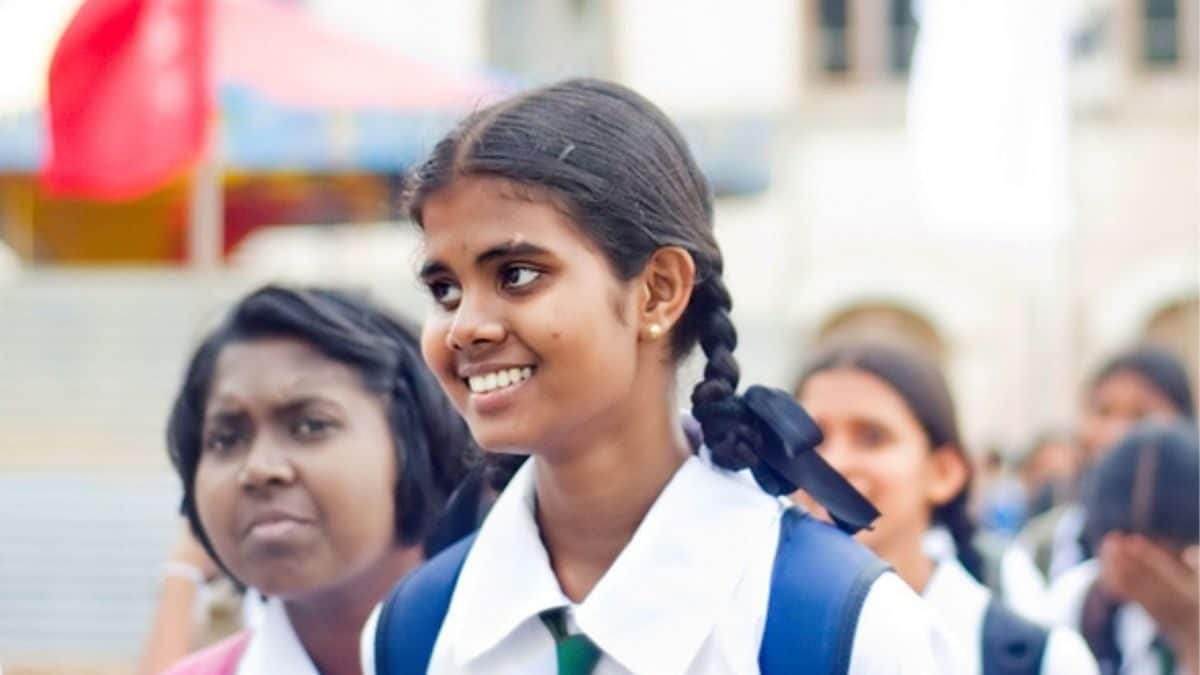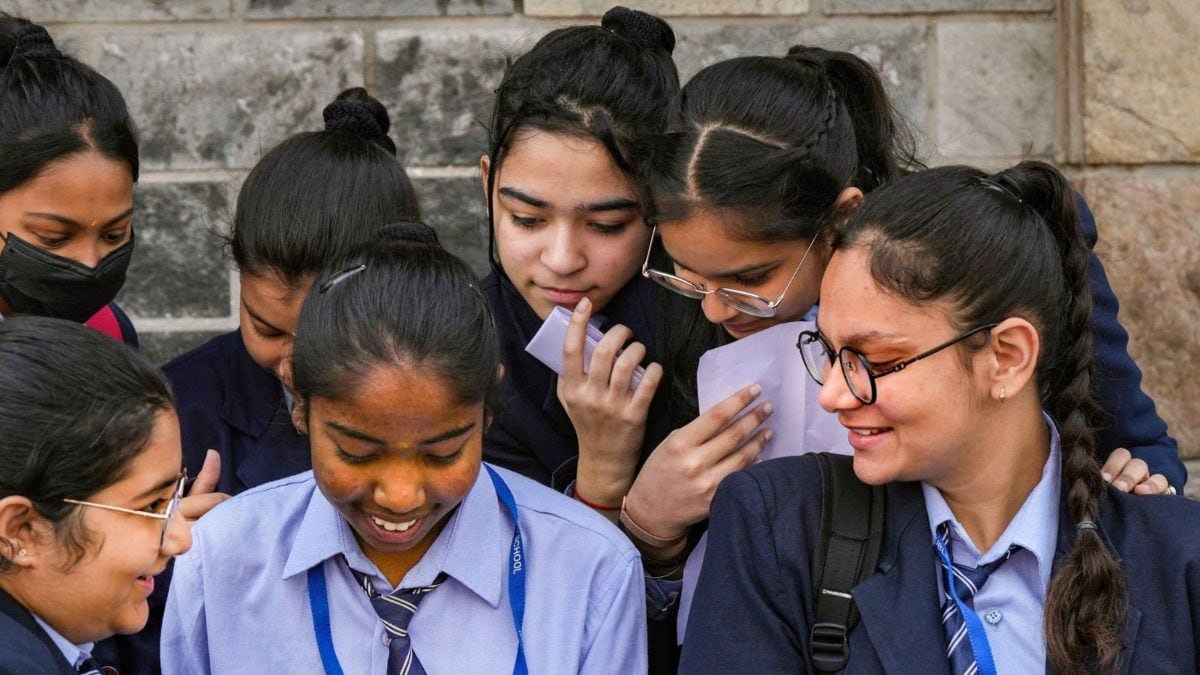[ad_1]
All set to lead a team of 12 faculty members from the Indian Institute of Technology (IIT)-Madras to Zanzibar, the island city in Tanzania in East Africa, to start the first batch of the first international campus here for any IIT, Prof Preeti Aghalayam feels this will give confidence to more women students.
ALSO READ | Women A Minority at IITs, Prof Preeti Aghalayam Tells News18 as She’s Set to Lead Zanzibar Campus
“This may come as a step forward and give confidence to more women students to study math and science, which have largely been considered male-centric domains,” says Aghalayam, in an exclusive interview to News18 from Chennai. Aghalayam and her team will take the flight to Zanzibar next week, ahead of the commencement of classes from October 24.
There are many firsts here, says the professor, who has been appointed as the director-in-charge of IIT Zanzibar (a branch of IIT-Madras), the first woman ever to head an IIT since it was established in the country in 1951.
While IITs have been the premier tech institutes in India, the number of women, both faculty and students, has been low on the campuses. “There is a misguided, completely wrong perception that women cannot be as good as men, especially in math, which needs to be corrected. So, the messaging is very important,” the Prof says.
A chemical engineer, Aghalayam, also an alumnus from the institute, has been teaching here since 2010. She was also one of the 75 women recognised in STEM (Science, Technology, Engineering and Math) by the Principal Scientific Advisor’s office. Being associated with the global management wing of the institute for long, she is leading the first offshore campus and the journey so far, she says has been “overwhelming”, as she has been receiving a “completely unexpected” response since her name was announced for the new role.
The IIT-Zanzibar director tells News18 about the gender gap in various fields and how it can be plugged, the new admission criteria for entry into the overseas campus and why it is important for women to pursue their choice of studying maths, science and technology more assertively.
Edited excerpts:
Tanzania recently got its first woman president. Now, an IIT has appointed its first woman director to lead its first overseas campus here. Was this a conscious decision on part of the institute?
For me, it was just the right person at the right place at the right time. I have been working in the office of global engagement at IIT-Madras for several years now and we have been thinking about strategies for internationalisation. Another question was do we need to internationalise while we are doing well at the top of the rankings here in India? Should we go forward with this? I have been a part of all these discussions and meeting colleagues from various campuses and visiting different places. I believe this new role as director-in-charge was a product of that.
Also, I just tick a few boxes maybe in terms of passion for teaching, having a long career behind me in teaching, research and administration at IIT-Madras as well. I may sound biased, but it’s only true that IIT-M is one of the most agile institutions today. For instance, what we have done in online education in bringing it to every doorstep, our recent foray in medical sciences and technology, various reforms in curricula and the way we have specially curated programmes for international students. I think the leadership and the envisioning of IIT-M is so agile that it was an obvious next step that you would hear something like this from us.
How do you see your new role as director of the first global IIT campus?
I have been as a faculty in the IIT system for 21 years at this moment. I am a lifetime academic. My family is of academicians. So teaching, research and academics is a passion from my school days. I am grateful for this opportunity to lead this institution. I have a decade left in my academic career and it is gratifying to contribute in some way to Indian and global education.
While there has been some improvement over the past decade in the number of women getting into IITs, they still are a minority on IIT campuses and those featuring in the top percentiles are even fewer. What do you think is the reason?
The entry into IITs is in the hands of school students and their families. It depends on how they prepare them for the competitive exam. The mentoring starts at home, so a lot depends on parents as well on what disciplines students chose and why. Besides, it is a competitive exam being written by lakhs of students. Even a small difference in marks results in a large difference in ranks. At our end, we have a policy on class composition in undergraduate classes. Every undergraduate class has to have a minimum of 20% of women, which has helped increase the numbers and attract more women to the undergraduate system. In terms of our post-graduate and research programmes, we are doing well, we have a reasonably healthy percentage with 25-30% of the class being women. In terms of impactful research, a large number of women are on top.
Is there a way to train more women into STEM?
Training will surely help. We do reach out to a lot of government and rural schools where we encourage women students to come forward and study science and math and get better at it. It’s not just in India, it’s a problem across the world that there is a misguided, completely wrong perception that women cannot be as good as men especially in math. You keep telling young people that and it worms into the mind. If you go into something when you are less confident, you may not do as well as when you are brimming with confidence. The messaging is very important. Women, if they really want to, can be just as good as anyone else. They should aspire for it, including seats in the IITs, if they so wish.
The move has set an example for all IITs and other institutions. Do you think it will motivate more women to pursue these disciplines?
I certainly hope so. It was completely unexpected. After the institute announced my name, there was so much media attention on it. I hope the message it sends to young people is a positive one. This is not the only fact that young women and men have to look at. The recent announcement for the economics Nobel to Claudia Goldin for her work on gender wage gap is a big step forward for women being considered as equal and efficient at the workplace, and to aspire for equity and equality in every field.
How is the scenario at Zanzibar in terms of women applicants?
We got a lot of women applicants, more than we usually do in our undergraduate programmes. I don’t have the numbers right away, but even during the interviews and the final list, there is a very healthy percentage of women.
What is the admission criteria for students’ entry into the overseas campus? Is it Joint Entrance Examination (JEE), the same as in India?
No, the entrance test not JEE. The entry test here is called Zanzibar screening test, which was devised by IIT-Madras faculty. It was administered simultaneously across the world using our partners in various countries. We interviewed students who did well in the screening test. We interviewed very large number of students this year and we selected them based on their performance in the screening test and the interview. It’s a quantitative criterion, which you may call a percentile, because we rank-ordered them and then interviewed the top X per cent and within that the Y per cent is what we made offers to. Also, in the application form, we asked details of their school performance, which were also taken into account. The test also included a little bit of their English language skills and analytical abilities. This criteria has been approved by our senate. But it has been suggested to us to bring in a few reforms, including other ways of having students enter. For example, if they have taken a similar exam like JEE, then not forcing them to take one more exam, because it is stressful for students to be writing all the exams. We will present it to our senate and seek their approval before making any changes.
What is the student intake for the first batches?
Student on-boarding is going on right now and we are just finalising the list. We have been talking continuously to our counterparts in Zanzibar. The numbers will be clearer once all students arrive. Those traveling internationally will reach the campus on October 22, while local students will come on October 23. Right now, the registration is going on and we will meet our target for a batch of 20 for the Masters programme, while 30-40 students for the undergraduate programme. For both Masters and the UG programmes, the discipline being offered is the same — data science and artificial intelligence (AI).
[ad_2]
Source link




